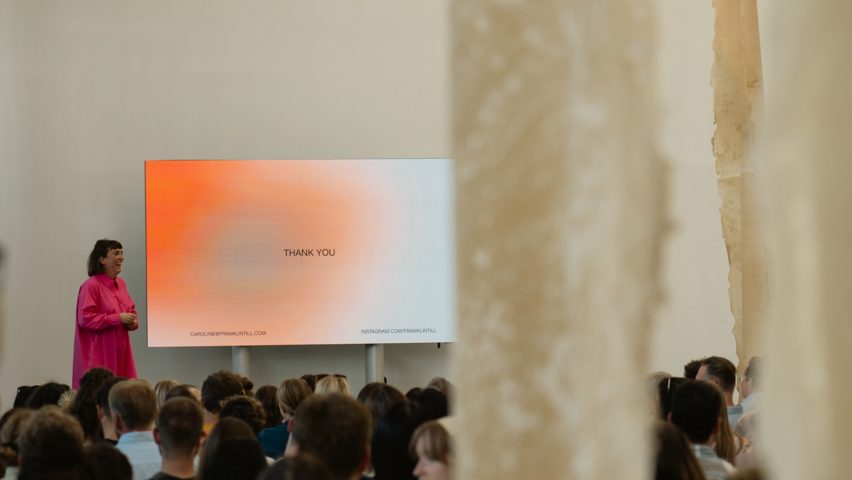The conversation of sustainability is at the forefront of design but there is "still a long way to go" said designer Caroline Till at the Materials of Tomorrow symposium during 3 Days of Design.
Researcher and designer Till began her keynote speech at the Materials of Tomorrow symposium, which was hosted by furniture brand IKEA's research lab Space10, by focusing on how human activity has depleted the Earth's resources.
"We are finally becoming aware of the damage caused by the current systems of design and manufacturing consumption to people and planet alike," said Till, who is the co-founder of research agency FranklinTill.
"The acceleration of human changes are inextricably linked to earth system changes," she continued. "Historically, geopolitical dominance by the West – a potent combination of geopolitical issues, colonialism and capitalism – has led to this issue of depletion."
She emphasised the importance of progression and of moving away from the concept of sustainability toward design that is restorative.
"By definition, sustainability is about maintaining the status quo and we’ve gone past being able to do that," Till said. "Circularity is great, because it's about leaving no trace."
"But the conversation has started to shift towards regeneration: putting back better, restoring, replenishing," she added.
"Personally, I think we’ve got a bit of a crisis in the design industry. We use these terms, but what do they mean? What is the definition of regenerative and who has the right to use it?"
"There is an incredible amount of material innovation"
While emphasising the importance of working towards a regenerative future, Till also noted that there are current successful projects within the design industry.
"There is an incredible amount of material innovation that is happening, not just on a composition level but on a systems and service level," said Till.
The designer highlighted the work of material brands Materiom, Atelier Luma and Mogu, while also crediting the fashion industry for pioneering restorative projects.
It is important to not think of waste as waste, but as a resource, according to Till.
"Even three to five years ago, the idea of something being made from waste would have been thought of as less valuable. Now if a material has a past life it's aspirational," she said.
"I think the fashion industry is forging the way of making repair aspirational, having that sense of story and narrative. And we're starting to see it now within interiors as well."
Materials "always evolving"
For Till, there must be a shift in the perception of materials before substantial change can happen, moving away from rigid structures of materials being categorised as "good" or "bad".
"We need to start talking and thinking about materials as systems. They are not inanimate objects, they exist as always evolving, flowing dynamic systems," Till added.
"I think we often have this quite binary perspective that natural materials are good and technical synthetic materials are bad," she said.
"And that's not the case. If we understand the systems in which they exist then they can have the most impact."
Franklin Till is a research and product development agency specialising in materials, founded by Caroline Till and Kate Franklin in 2010.
Till was one of the guest curators for culture centre the Barbican's Our Time on Earth exhibition. She held her speech at 3 Days of Design among a collection of biomaterials designed by Natural Material Studio for the Human Nature exhibition.
The photography is by Anne-Sophie Rosenvinge.
3 Days of Design took place in venues around Copenhagen from 7 to 9 June 2023. See Dezeen Events Guide for information, plus a list of other architecture and design events taking place around the world.

